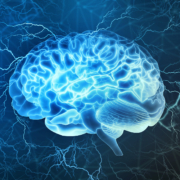7 tips for stroke prevention
Strokes are dangerous, but they don’t have to be inevitable. The US Centers for Disease Control and Prevention has said that as many as 80 percent of all strokes are preventable, provided we humans take good care of ourselves.
Dr. Ronald Lazar, a Professor of Neurology and Neurobiology and the Evelyn F. McKnight Endowed Chair in Memory and Learning at the University of Alabama Birmingham, said that taking good care is more than simply embracing one or two ideals—instead, it’s embracing a lifestyle that fundamentally minimizes stroke risk.
Here, according to Lazar and sources such as the Mayo Clinic, are some of the components of that lifestyle.
- Control high blood pressure
- Eat right
- Quit tobacco use
- Maintain a healthy weight
- Exercise regularly
- Drink alcohol in moderation (if at all)
- Avoid illicit drugs
Control high blood pressure. This is one of the most important things patients can do to reduce risk of stroke. For those who have had a stroke, lowering your blood pressure can help prevent a TIA or another stroke in the future.
Eat right. Lowering the amount of cholesterol and saturated and trans fats in one’s diet may reduce buildup in the arteries, which, in turn, can reduce risk of stroke. If a patient can’t control cholesterol through dietary changes alone, they may need a cholesterol-lowering medicine. What’s more, eating five or more servings of fruits or vegetables every day may reduce the risk of stroke. The DASH diet and the Mediterranean diet, which emphasize olive oil, fruit, nuts, vegetables and whole grains, also may be helpful.
Quit tobacco use. Smoking raises the risk of stroke for smokers and nonsmokers exposed to secondhand smoke. Quitting lowers your risk of stroke.
Maintain a healthy weight. Being overweight contributes to other stroke risk factors, such as high blood pressure, cardiovascular disease, and diabetes. (See this peer-reviewed article for more information.)
Exercise regularly. Aerobic exercise reduces the risk of stroke by lowering blood pressure, increasing levels of good cholesterol, and improving the overall health of the blood vessels and heart. It also helps patients lose weight, control diabetes, and reduce stress (which are all independent factors that could contribute to the risk of stroke).
Drink alcohol in moderation (if at all). Drinking large amounts of alcohol increases the risk of high blood pressure and strokes. At the same time, some research suggests that drinking small to moderate amounts of alcohol may help prevent ischemic stroke and decrease the blood’s clotting tendency. New research suggests possible negative outcomes connected with any level of alcohol use, so it is important to balance the risks and potential benefits of drinking alcohol.
Avoid illicit drugs. Certain illicit drugs such as cocaine and methamphetamine are established risk factors for a TIA or a stroke.
This article has been factchecked. For more about that process, click here.









